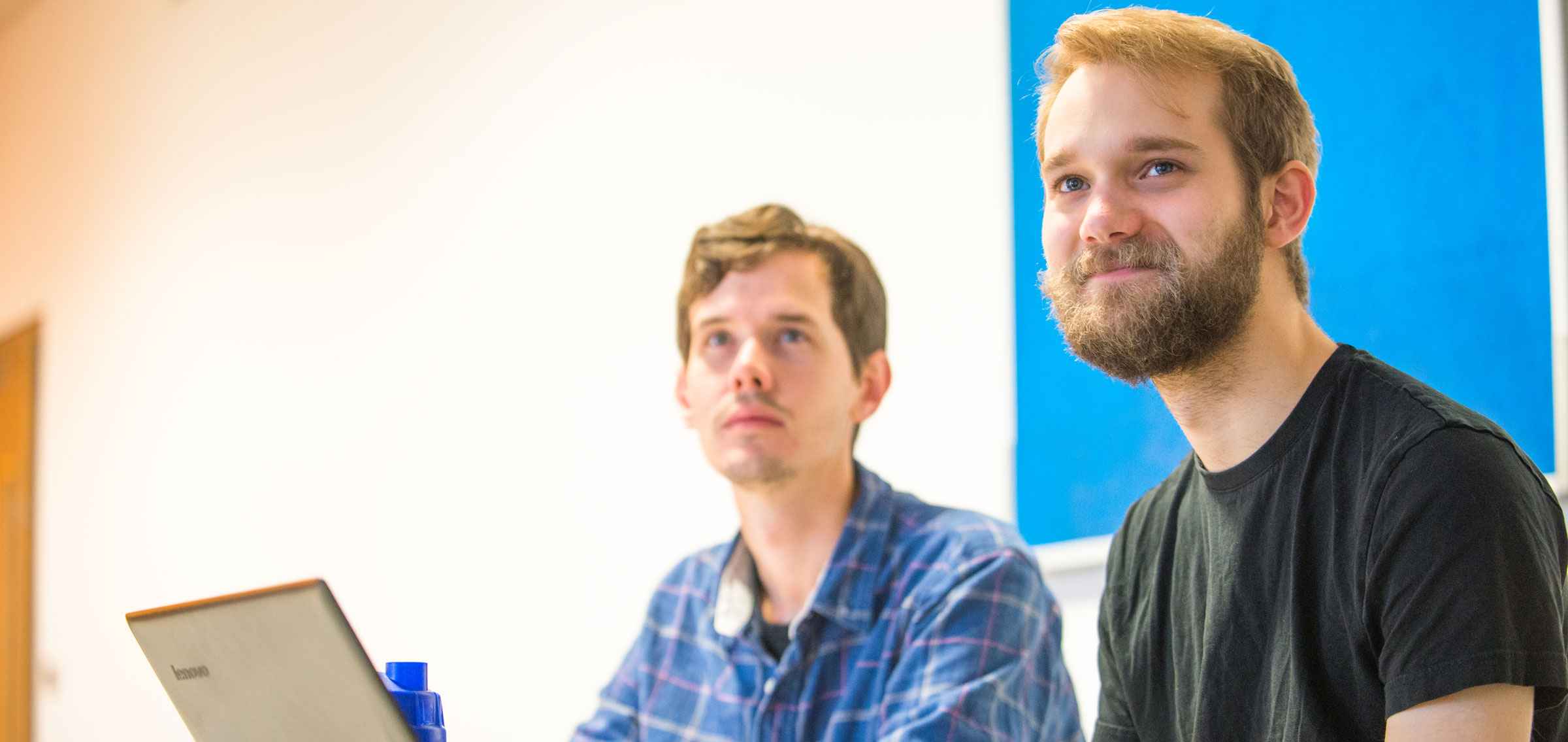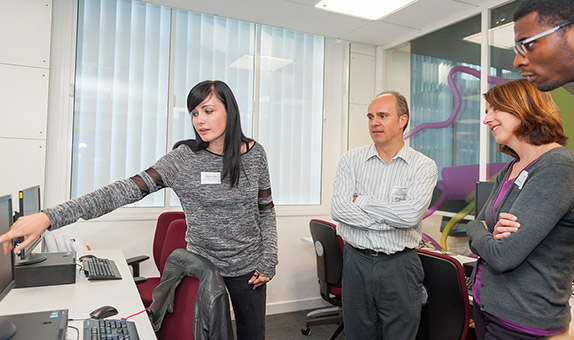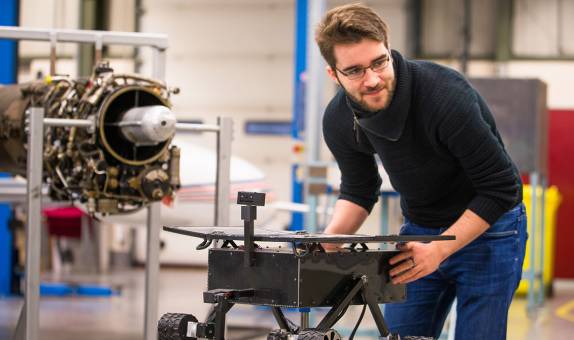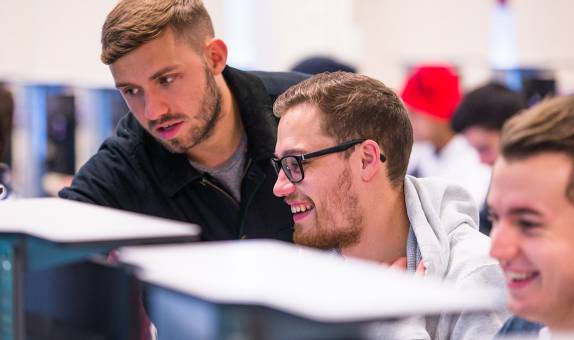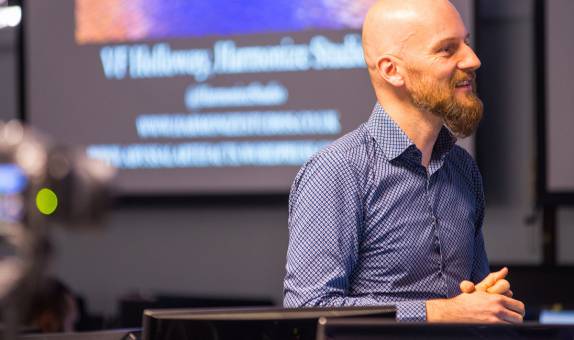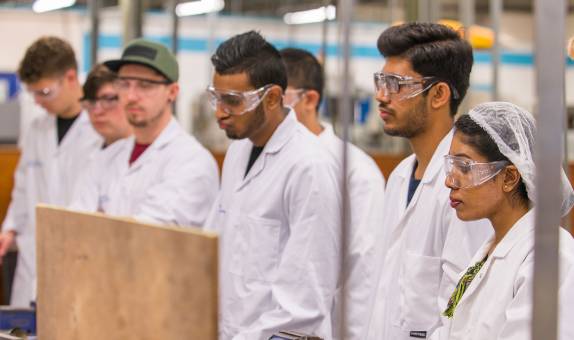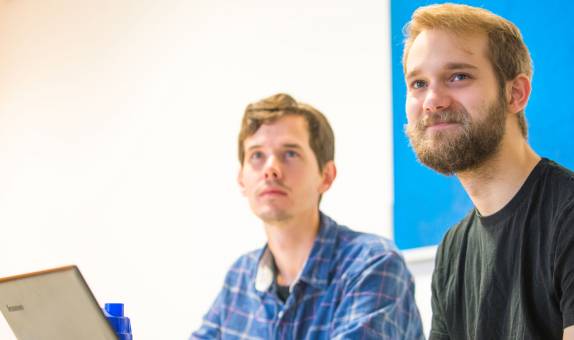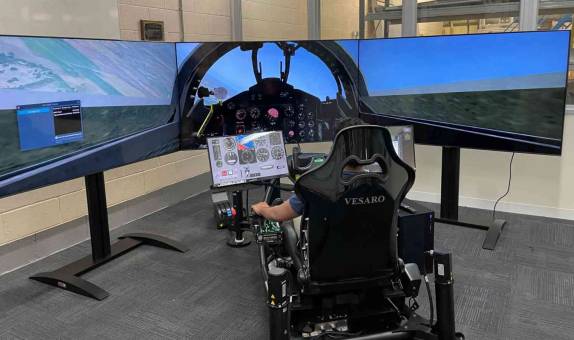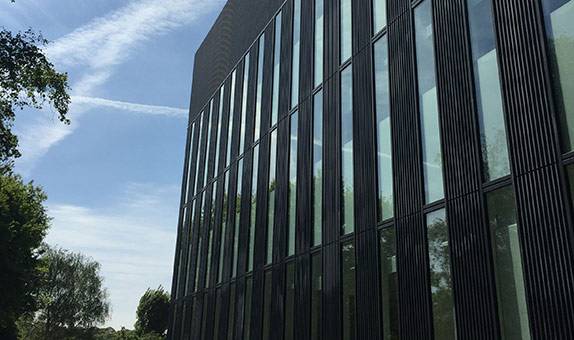School of Engineering
The School of Engineering is made up of three departments:
Tomorrow's Engineers Code
 The Tomorrow's Engineers Code is a commitment to work toward common goals, or pledges, to increase the diversity and number of young people entering engineering careers.
The Tomorrow's Engineers Code is a commitment to work toward common goals, or pledges, to increase the diversity and number of young people entering engineering careers.
Department of Mechanical Engineering
Mechanical Engineering has strong links with industry leaders, including Delphi, Lotus Engineering, MAN and Thales. Many of our innovative, hands-on projects involve students as well as academics and receive national and global coverage.
Our applied approach to teaching is supported by dedicated laboratories for mechanical, automotive and motorsport engineering.
Facilities include:
- wind tunnels
- state-of-the-art rapid prototyping and manufacturing machinery
- a fully-equipped materials lab
- engine test cells
- an automotive diagnostics lab featuring the latest industrial software packages
- a modern electronics/robotics lab with the recent addition of a robot and electronic equipment from National Instruments.
Students have the opportunity to use leading technology and industry-standard software. They are taught by experts with Chartered Engineer status. Students' learning experience is enhanced through participation in competitions, such as the IMechE Formula Student project, the IMechE Design Challenge competitions for Year 1 and 2 students, the Isle of Man TT-Bike race and the Caterham Academy Championship.
Department of Aerospace and Aircraft Engineering
Kingston University is the UK's largest provider of undergraduate aerospace education. It has played an important role in training aerospace engineers since 1912.
We have a dedicated campus for engineering students at Roehampton Vale, within easy reach of Kingston town centre and Richmond Park. Collaboration between academia and industry is integral to study at Kingston; the delivery of courses is supported by the Industry Advisory Board and other professional bodies.
Renowned companies are involved in course delivery, placements, final year projects and industry talks. These companies range from global leaders KLM Engineering, Marshall Aerospace and the Defence Group, Airbus UK, Astrium Eads, GE Aircraft, and Lockheed, to small- and medium-sized enterprises such as Aero Optimal, Aircraft Research Associates, and Aim Aviation.
We offer a wide range of specialist facilities on site, supported with software technology and laboratory technicians.
Whether you wish to study at foundation level or a Chartered Engineer route (MEng/BEng), when it comes to aerospace design, aircraft maintenance or space technology, you will find a course at Kingston University to suit your needs.
Department of Electrical, Electronic and Robotic Engineering
Kingston University's department of Electrical, Electronic and Robotic Engineering draws its strength from the University's existing experience of providing high-quality engineering courses. Based at our Roehampton Vale campus – the dedicated site for engineering with an already-wide range of specialist facilities – the department offers the following courses:
- MEng/BEng Electrical and Electronic Engineering
- MEng/BEng Electronic Products Engineering
- MSc Electronics and Robotics
The department is in the process of developing a range of state-of-the-art specialist facilities and resources including:
- electronics laboratory
- electronic products workshop
- electrical machine room
- robotics laboratory.
We have established strong links with industry and our courses have been designed to provide graduates with Kingston University's Future Skills attributes, to meet industry needs and to boost their employability prospects.
